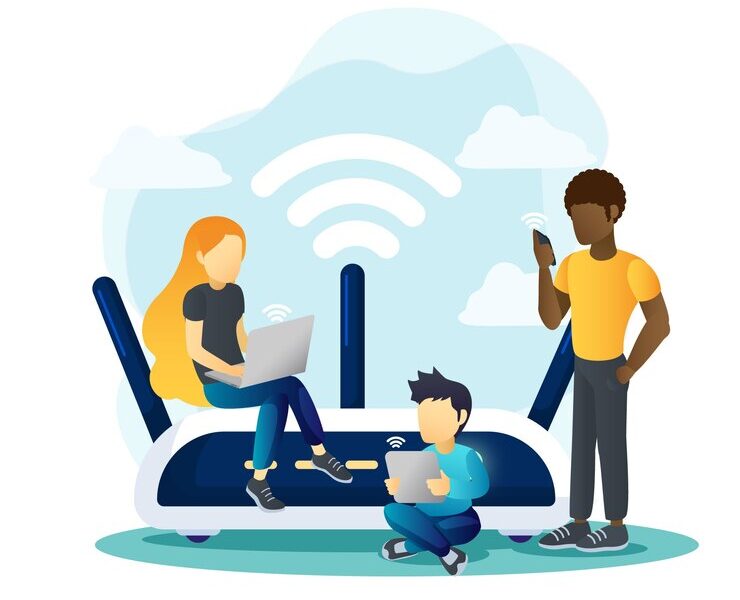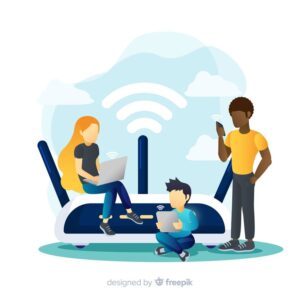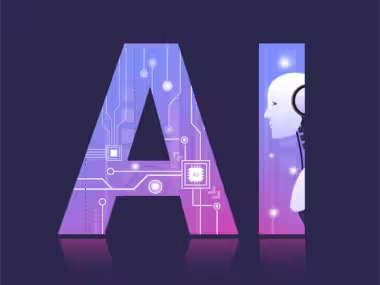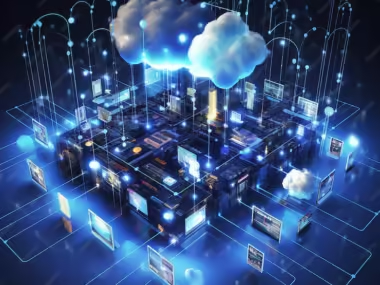Smart Devices Creating a Seamlessly Connected and Automated Environment
Introduction
The Internet of Things (IoT) is no longer a futuristic concept; it’s a reality that is transforming our world. By connecting everyday objects to the internet, IoT enables a seamlessly connected and automated environment. Central to this transformation is cloud computing, which provides the necessary infrastructure and power to manage vast amounts of data. This article explores how IoT smart devices, backed by cloud computing, are revolutionizing various sectors and enhancing our daily lives.
Revolutionizing Industries
Smart Manufacturing
In manufacturing, IoT is driving unprecedented efficiency and innovation. Smart factories use IoT sensors and devices to monitor and control production processes in real time. With cloud computing, these factories can analyze massive datasets to optimize operations, reduce waste, and improve quality control. For example, predictive maintenance systems use IoT data to forecast equipment failures before they happen, preventing costly downtime and repairs.
Healthcare Transformation
IoT is also making waves in healthcare. Wearable devices and remote monitoring tools collect patient data continuously, providing doctors with real-time insights. This constant flow of information, stored and analyzed through cloud computing, enables more accurate diagnoses and personalized treatment plans. Additionally, smart medical devices can alert healthcare providers to critical changes in a patient’s condition, ensuring timely interventions and better patient outcomes.
Enhanced Retail Experiences
In the retail sector, IoT is creating more personalized and efficient shopping experiences. Smart shelves and inventory management systems track product availability in real time, ensuring that stores remain well-stocked. With the power of cloud computing, retailers can analyze customer data to offer personalized recommendations and promotions. This targeted approach not only enhances the customer experience but also drives sales and customer loyalty.
Transforming Daily Life
Smart Homes
IoT is at the heart of smart home technology, making our living spaces more comfortable, efficient, and secure. Connected devices, such as smart thermostats, lighting systems, and security cameras, can be controlled remotely via smartphones or voice assistants. Cloud computing enables these devices to learn from our habits and preferences, automating tasks like adjusting the thermostat or turning off lights when we leave the house. This level of automation not only enhances convenience but also helps save energy and reduce costs.
Smart Cities
Beyond individual homes, IoT is crucial in developing smart cities. These urban areas use IoT devices to manage resources and services more effectively. For instance, smart traffic lights adjust in real time to reduce congestion, while connected waste management systems optimize collection routes. Cloud computing provides the processing power needed to analyze data from thousands of sensors across the city, leading to more informed decision-making and improved quality of life for residents.
Connected Transportation
IoT is also transforming transportation, making it safer and more efficient. Connected vehicles communicate with each other and with infrastructure, reducing the risk of accidents and improving traffic flow. For example, IoT-enabled fleet management systems track vehicle performance and driver behavior, ensuring optimal routes and fuel efficiency. Cloud computing processes the vast amount of data generated by these systems, enabling real-time insights and faster responses to issues.
The Role of Cloud Computing
Data Management and Analytics
Cloud computing plays a pivotal role in the success of IoT by providing scalable storage and processing capabilities. As IoT devices generate massive amounts of data, the cloud offers a centralized platform to collect, store, and analyze this information. This allows businesses and individuals to gain valuable insights and make data-driven decisions.
Security and Reliability
Moreover, cloud computing enhances the security and reliability of internet of things. Advanced encryption and authentication methods protect data as it travels between devices and the cloud. Additionally, cloud service providers offer robust backup and disaster recovery solutions, ensuring that IoT systems remain operational even in the event of a failure.
Conclusion
The Internet of Things, powered by cloud computing, is creating a seamlessly connected and automated environment. From revolutionizing industries like manufacturing, healthcare, and retail to transforming our daily lives through smart homes and cities, IoT is driving innovation and efficiency. As we continue to integrate IoT technology into our world, the possibilities for a smarter, more connected future are endless. Embrace the IoT revolution, and experience the transformative power of smart devices and cloud computing.






